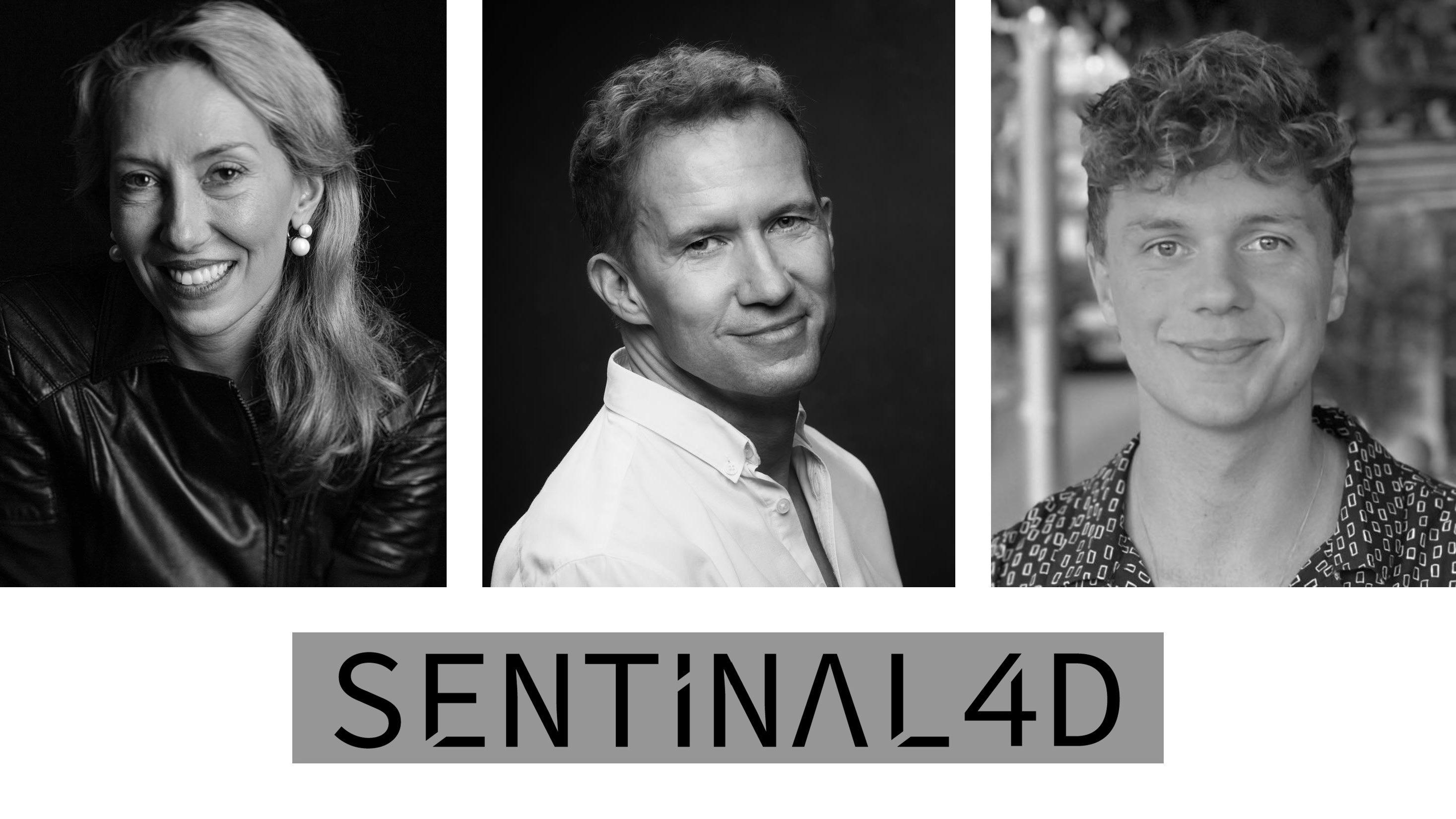
Image: Georgia Mitsi, Chris Bakal and Matt de Vries
Sentinal4D, a spinout company from The Institute of Cancer Research, London, has been announced to the public – having closed its first round of funding and appointed its foundational leadership team.
The highly innovative new company aims to accelerate drug discovery and development to target drugs to patients, powered via patented artificial intelligence-driven methods for personalised therapeutics, with a focus on oncology.
The know-how in Sentinal4D is built on years of data and expertise developed in the lab of Professor Chris Bakal at The Institute of Cancer Research (ICR) and part-funded by Cancer Research UK. Professor Bakal is a world-leading expert in the role of cell shape in cancer and will be Sentinal4D’s Chief Scientific Officer.
Under the terms of the agreements with the ICR and Cancer Research Horizons, the ICR and Cancer Research Horizons received equity in the company and will be eligible to receive downstream payments and royalties on products and services.
Sentinal4D aims to eliminate the guesswork and expedite drug discovery by providing insights that will increase the chances of success in the subsequent phases of drug development.
The company’s approach involves high-throughput 3D imaging of cancer models pre- and post-therapeutic intervention, a proprietary AI-based 3D computer vision model, and integration with multimodal data.
Sentinal4D products offer a variety of predictions about response, efficacy and toxicity to potential new drugs in addition to which patient subsets might benefit the most from a certain drug or combination of drugs.
Funders supporting Sentinal4D at its launch include Twin Path Ventures, Arben Ventures and angel investors. Sentinal4D was recognised and supported by the Cancer Tech Accelerator, which was provided by Capital Enterprise and supported and funded by Capital Research UK, Cancer Research Horizons and the UK Research and Innovation Medical Research Council.
The company will be led by Chief Executive Officer and co-founder Georgia Mitsi, an experienced pharmaceutical executive with specific expertise in new technologies and innovation and a proven track record on partnerships. Dr Georgia Mitsi was instrumental in completing the tech transfer and closing the pre-seed round.
The team also includes Matt de Vries (co-founder and Chief Technology Officer), an entrepreneurial scientist with expertise in AI models who was trained in Professor Bakal’s laboratory.
Matt has developed sophisticated ‘Multiple Instance Learning’ models to analyse 3D shapes of cancer cells from both still images and videos. His work has been accepted in top computational conferences such as MICCAI and NeurIPS, and published in Cell Systems. Matt also won the Cancer Research Horizons Innovation and Entrepreneurship 2024 award for Early Career Entrepreneur of the Year.
Sentinal4D is the second spinout company to be announced by the ICR this year, and follows recent spinout successes including the foundation of Monte Rosa Therapeutics, which is now listed on New York’s NASDAQ stock exchange.
Research underpinning Sentinal4D’s foundation was supported by the ICR and funders including Cancer Research UK.
Dr Jon Wilkinson, Director of Business and Innovation at The Institute of Cancer Research, London, said:
“We’re excited to announce the formation of ICR spinout company Sentinal4D, which is taking a new and highly innovative approach in using 3D-imaging analysis powered by AI for precision therapeutics in oncology. Sentinal4D is the latest of several new spinout companies to emerge from our work at the ICR, as we continue to encourage scientists to found companies as part of the mix of what they do.”
Professor Chris Bakal, Professor of Dynamical Cell Systems at The Institute of Cancer Research, London, and scientific co-founder of Sentinal4D, said:
“Sentinal4D brings together several strands of expertise we’ve been building in the lab for a number of years – including a deepening understanding of the role of cellular shape-shifting in cancer, innovative new methods of drug discovery, and AI-driven analysis of data including image data. We’re delighted to see it launch following a successful round of pre-seed funding.”
Dr Georgia Mitsi, CEO of Sentinal4D, said:
“For many years I have been working with start-ups and innovative technologies. Sentinal4D’s cutting-edge technology enables a new approach to drug discovery and development that could transform the traditional ways of working by adapting a biology-first, holistic strategy.
“Considering the poor success rates and challenges in drug development, we now have the opportunity to finally realise the vision for personalised therapeutics and bring effective treatments to patients faster, better and cheaper. With all the hype around AI, at Sentinal4D we strive to differentiate ourselves by emphasising that high quality, deep level data is the key to predictive modelling. I am looking forward to taking the company to the next level and start working with other innovative companies that share the same vision.”
.tmb-propic-md.jpg?Culture=en&sfvrsn=c25d2b2f_9)
 .
.
